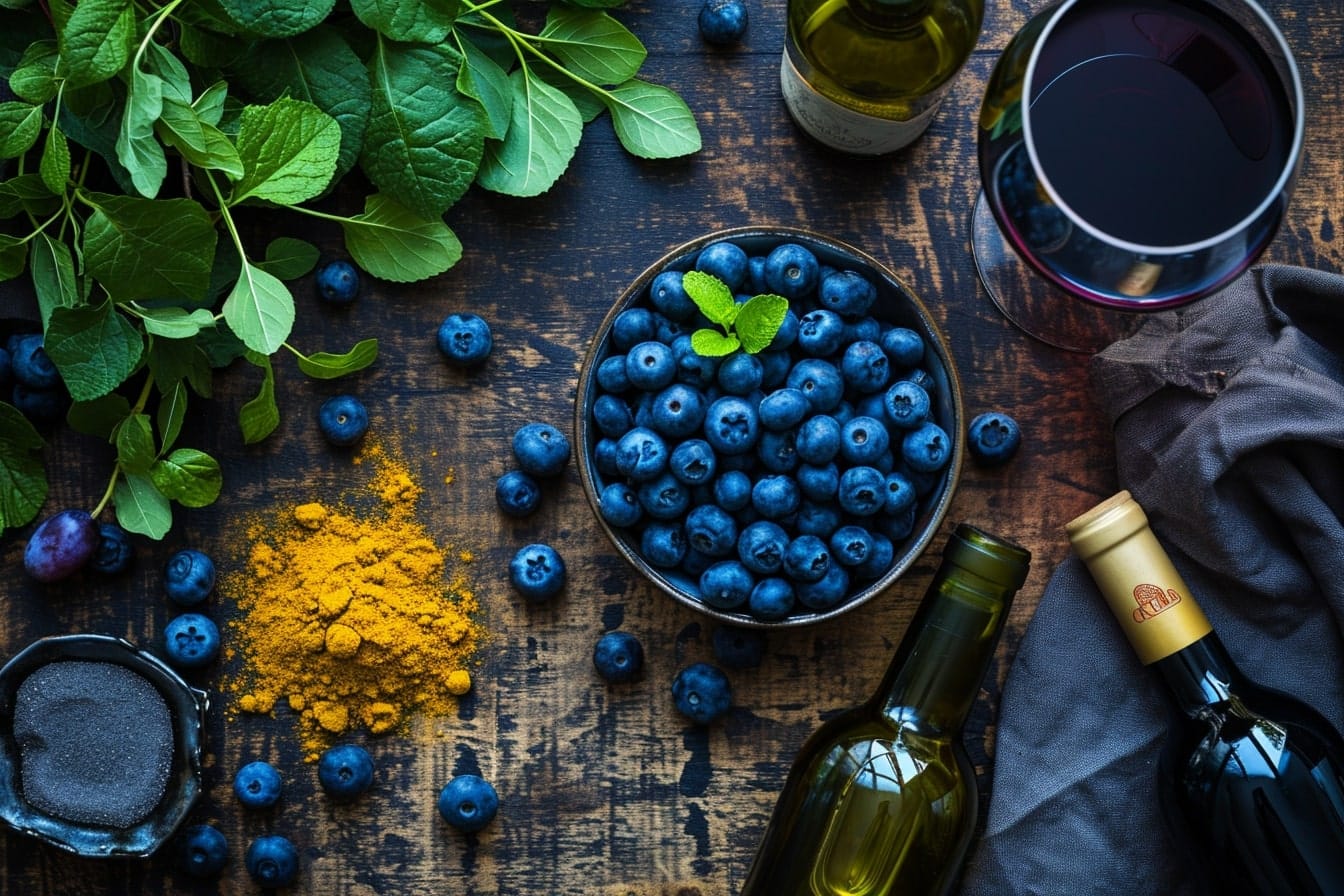Boost Your Brain Power with These Memory-Enhancing Superfoods
Your brain is your most vital organ. As the control center for your entire body, it allows you to think, remember, communicate, and function on a daily basis. Keeping your brain healthy and active should be a top priority, especially as you get older.
Age-related cognitive decline and neurodegenerative diseases like Alzheimer’s and dementia can severely impact memory, thinking skills, and quality of life. While genetics plays a role, research shows your lifestyle choices and diet have a significant influence on long-term brain health.
The good news is that certain foods contain powerful compounds and antioxidants that can protect the brain, boost cognitive function, and reduce your risk of memory loss. By making memory-enhancing superfoods a regular part of your diet, you can nourish your brain and give it the tools it needs to operate at peak performance while also guarding it against damage and deterioration.
Investing in your brain health now by eating nutritious, brain-boosting foods can pay huge dividends later in life in the form of sharper thinking, quicker recall, improved focus, better mood, and preserved independence. Read on to learn about some of the top superfoods for cognitive function and why you should add them into your weekly meal planning.
Blueberries
When it comes to brain-boosting superfoods, blueberries top the list. These bitesized berries contain anthocyanins, a type of antioxidant that gives blueberries their signature blue-purple color. Multiple studies, including research published in the Journal of Agricultural and Food Chemistry, have found that eating blueberries and drinking blueberry juice can improve memory, learning, and overall cognitive function in older adults experiencing mild cognitive decline.
Blueberries support brain health in several important ways:
- Anthocyanins have powerful antioxidant and anti-inflammatory effects that protect the brain against free radical damage and inflammation, two factors that can impair cognition.
- Animal research indicates anthocyanins may also boost signaling between brain cells involved in memory formation and storage. They appear to stimulate synaptic plasticity and communication between neurons.
- The antioxidants in blueberries can slow down glucose breakdown, allowing the brain to better utilize this vital energy source and enhance cognitive abilities.
- Blueberry anthocyanins delay breakdown of neurons and preserve existing pathways, helping to maintain cognitive abilities and prevent age-related decline.
- They also stimulate neurogenesis, the growth and development of new healthy brain cells. This contributes to an overall rejuvenating effect.
The best way to reap these benefits is to eat fresh or frozen wild blueberries daily. Aim for a handful sprinkled on cereal, yogurt, oatmeal, or salads. You can also drink a glass of 100% blueberry juice. Just avoid baked goods like muffins and pies with added sugars, which can counteract the brain-boosting anthocyanins.
Turmeric
The vibrant yellow spice turmeric contains the powerful compound curcumin, which research has shown enhances cognitive function and memory in multiple ways:
- Studies in Neuropharmacology have demonstrated curcumin’s ability to improve mood and protect the brain against stress-related memory and cognitive issues.
- Curcumin is a potent anti-inflammatory that can cross the blood-brain barrier and directly target neuroinflammation. This is important because chronic inflammation is linked to cognitive decline.
- It limits the breakdown of neurons and synaptic connections, preserving existing pathways in the brain and helping maintain neural communication.
- Curcumin reduces plaque buildup in the brain that is associated with Alzheimer’s disease and dementia, according to research.
- It enhances levels of BDNF (brain-derived neurotrophic factor), a protein that stimulates growth of new neurons. This contributes to long-term memory.
- As a powerful antioxidant, curcumin neutralizes free radicals that can damage brain cells.
- It also improves blood flow to the brain to deliver more oxygen and nutrients.
Curcumin is what gives turmeric its medical potency. You can add turmeric to curries, soups, stir frys, scrambled eggs, rice dishes, and more. For optimal absorption, pair it with black pepper. Curcumin supplements are also an option, but check with your doctor first.
Red Wine and Grape Juice
The same anthocyanins that give blueberries their brain-boosting power also give red grapes and red wine their bold color. During the fermentation process, red wine becomes particularly concentrated with another beneficial antioxidant called resveratrol, found in grape skins.
Moderate intake of red wine (up to 1-2 glasses per day for women and 2-3 for men) provides these mental health benefits according to research:
- Resveratrol preserves existing neurons and synaptic connections, maintaining the brain’s structural integrity to support cognitive abilities.
- It reduces formation of amyloid beta brain plaques associated with Alzheimer’s disease, decreasing risk.
- The anthocyanins and resveratrol in red wine have anti-inflammatory effects that protect the brain. Unchecked inflammation can impair memory and thinking.
- Resveratrol limits breakdown of important neurotransmitters like serotonin and dopamine. Preserving these chemical messengers is key for proper cognition.
- Both compounds stimulate production of BDNF (brain-derived neurotrophic factor), which promotes development of new neurons.
If you don’t drink alcohol, Concord grape juice is a healthy alternative that provides many of the same advantages according to studies like this one in the British Journal of Nutrition. Substitute 100% grape juice for your glass of red wine to reap brain benefits without the alcohol.
Keeping your brain healthy and staving off cognitive decline requires a multi-pronged approach. While genetics plays a role, your lifestyle choices and diet have a huge impact. Making memory-enhancing superfoods a regular part of your meal planning is one of the most effective strategies for maintaining sharp thinking and quick recall.
Small, simple changes like adding a daily dose of blueberries, drinking a glass of grape juice, or sprinkling turmeric into your eggs can pay off in a big way. Over time, routinely consuming these antioxidant and nutrient-packed foods will help nourish a brain that stays nimble, energized and resilient.
Beyond these superfoods, having an overall balanced diet that emphasizes whole foods over processed fare is important. Get plenty of healthy fats from fish, nuts, seeds and oils to provide the building blocks for brain cell membranes. Load up on dark leafy greens like spinach and kale for vitamin K and folate. Choose complex carbs like whole grains and limit sugar. Drink water and moderate amounts of coffee or tea.
Brain health is not something to take for granted. But by adopting lifestyle habits and dietary choices that reduce inflammation, supply key antioxidants, stimulate growth of new neurons, and support cellular communication, you can maintain cognitive abilities for years to come. Your future self will thank you!







